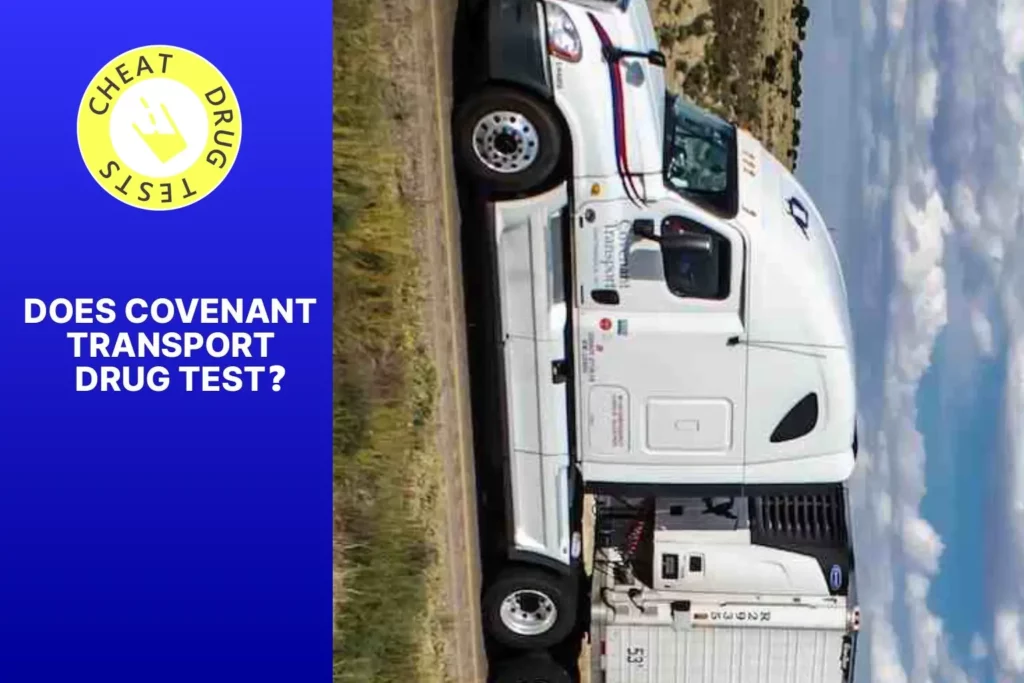Wondering if Safeway drug tests employees? Well, it does! Safeway conducts pre-employment drug screenings on potential candidates. This involves a urine test to detect any illegal substances.
So, what should you do? Firstly, refrain from using any illegal substances before the drug test. Secondly, drink plenty of water leading up to it. Last but not least, consider a detox product or kit to mask drug traces. But note, drug tests have become more sophisticated. So, be careful!
Understanding pre-employment drug screening
To understand pre-employment drug screening at Safeway, uncovering potential answers is crucial. In order to grasp the significance, explore further with sub-sections like “What is pre-employment drug screening?”, “Why do employers conduct pre-employment drug screening?”, and “What drugs are commonly tested for?” Find the solutions within Safeway’s drug testing procedures.
What is pre-employment drug screening?
Pre-employment drug screening is the process of testing individuals for illegal substances before they are hired. Employers do this to ensure a secure and successful work environment.
Drug screening usually includes examining urine, blood, saliva, or hair samples for drugs such as marijuana, cocaine, opiates, amphetamines, etc. This screening is not to invade an individual’s privacy, but to see if they are suitable for the job.
Pre-employment drug screening has several advantages:
- It helps employers determine candidates who may have drug problems.
- It can stop people from using illegal drugs, if they know they will be tested during the hiring process.
- It promotes a safe and responsible culture in organizations.
Though it can be seen as intrusive or discriminatory, it is widely accepted for many industries. For instance, transport companies often require drug screening due to safety regulations and liability worries. Similarly, jobs that involve sensitive info or working with vulnerable people often have strict drug testing policies.
An important incident occurred, where a candidate passed all stages of the hiring process but tested positive for illegal drugs during the final drug screening. Consequently, the company rescinded their offer of employment due to potential impairment on the job. This showed the significance of thorough pre-employment drug screening.
Finally, pre-employment drug screening is a helpful tool for employers to assess a candidate’s suitability and maintain workplace safety. By doing this, organizations can make wise decisions to protect their employees and increase productivity.
Why do employers conduct pre-employment drug screening?
Employers use pre-employment drug screenings for numerous reasons. It keeps the workplace secure, lessens the danger of accidents and injuries, boosts productivity and efficiency among employees, and abides by legal requirements. By executing such screenings, employers can make smart hiring decisions that match their company beliefs and keep a drug-free environment.
- Safety in the Workplace: Pre-employment drug tests help employers find possible applicants who could be a threat to themselves or others because of substance abuse.
- Decreasing Accidents & Injuries: Drugs can ruin someone’s judgement, coordination, and reaction time. By getting rid of individuals who test positive for drugs, employers lessen the chances of workplace incidents.
- Uplifting Productivity & Efficiency: Substance abuse can have a horrible effect on an employee’s performance. Pre-employment drug screenings let employers choose people who are more likely to be focused, reliable, and productive.
- Sticking to Legal Rules: Some industries have strict rules regarding drug use among employees. Doing pre-employment drug screenings makes sure regulations are followed while avoiding any legal issues.
- Keeping a Drug-Free Workplace: Employers try to create an atmosphere without the negative effects of substance abuse. With pre-employment drug screenings, they show their commitment to keeping a healthy work culture.
In addition, pre-employment drug screenings also give a chance to quickly identify any substance abuse issues that applicants might have. This lets employers provide support with employee assistance programs or referral services.
In truth, according to the Society for Human Resource Management (SHRM), around 84% of organizations in the United States do pre-employment drug tests as part of their hiring process.
What drugs are commonly tested for?
Drug screening is a common pre-employment practice. But, what substances do employers test for? Here’s a look at some of the most frequently tested drugs:
- Cannabis: Marijuana use is often screened due to its widespread use and impairing effects.
- Opioids: Oxycodone and heroin are two examples.
- Cocaine: This stimulant is often included due to its addictive properties.
- Amphetamines: Adderall and methamphetamine both fall into this category.
- Benzodiazepines: These are usually prescribed for anxiety or insomnia. They can cause drowsiness and affect cognitive function.
These drugs are often tested because of their potential to impact work performance. But, employers have different policies.
Statistics from SAMHSA show that in 2019, 9.7 million urine drug tests were conducted in the U.S. across different industries.
Does Safeway drug test job applicants?
To find out if Safeway drug tests job applicants, explore Safeway’s drug testing policy and the types of drug tests they use. Dive into the details of their policy and get familiar with the different types of drug tests employed by Safeway in their pre-employment drug screening process. Safeguard your chances of success by understanding their approach.
Safeway’s drug testing policy
Safeway has a strict drug testing policy for job applicants. I’ve created a table outlining this policy:
| Test Type | Applied to? |
|---|---|
| Pre-employment | All applicants |
| Random | Selected employees |
| Post-accident | Involved parties |
Also, Safeway conducts drug tests as per federal and state guidelines. They prioritize a safe environment for both employees and customers.
To pass the drug test, here are some tips:
- Research: Learn about the substances which can be detected during the test. This knowledge will help you decide if you should apply for a job at Safeway.
- Preparation: If you think you may be randomly selected for testing, avoid any unauthorised substances or prescription medications.
- Honesty: In cases of post-accident tests, it is important to be forthright about any substances consumed. Lying could lead to serious issues.
By following these tips, you’ll have a better understanding of Safeway’s drug testing policy and improve your chances of success during the employment process.
Types of drug tests used by Safeway
Safeway’s drug testing process is comprehensive. It keeps employees and customers safe. They use different types of tests to detect substance abuse. Here’s a table with more info:
| Type of Drug Test | Description |
|---|---|
| Urine Test | Detects marijuana, cocaine, opiates, amphetamines, and benzodiazepines. |
| Hair Follicle Test | Analyses a small amount of hair. Gives longer detection window than urine tests. |
| Saliva Test | Detects recent drug use. Can find marijuana, cocaine, amphetamines, opioids, and meth. |
| Blood Test | Gives accurate and immediate result. |
Safeway also uses extra screening methods for each job position. This helps protect their workplace. Here are some tips for job applicants:
- Research – Learn about the drug testing policies.
- Prepare – See your healthcare provider if you use meds or have used prohibited substances.
- Stay Informed – Be aware of current regulations and know your rights as an applicant.
By following these suggestions, applicants can be prepared for the drug testing process. They can also better understand why Safeway has these policies. That way, they can help keep the workplace safe and drug-free.
What to expect during a urine drug test
To understand what to expect during a urine drug test at Safeway, let’s delve into the procedure. Discover how to prepare for the test and find out what happens if you fail. This will provide you with a comprehensive overview of the process and help you navigate it with ease.
The procedure
When you provide a urine sample, you may have privacy or be monitored, depending on the facility’s protocols. The sample is sealed and labeled with your details. Tests are done to check for drugs or their metabolites. Results will be given by an employer or other authority. It’s important to follow instructions for valid results.
My friend had a shock when the drug test came back positive for something she’d never heard of. It was a trace of a compound from a minor infection medication. This incident taught her to disclose any substances taken before a drug test. False positives are possible. Being aware and following procedures helps ensure accuracy.
How to prepare for a urine drug test
Getting ready for a urine drug test can be intimidating, but it doesn’t have to be. By following these steps, you can make sure that you are prepared.
- Research: Become knowledgeable about the particulars of the urine drug test. This will help you know what substances are being tested for and any special directions you need to follow.
- Avoid drugs: If you are currently using drugs or medicines that may be seen in the test, it’s crucial to stop using them ahead of time. Be aware of how long these substances normally stay in your system and give yourself enough time to cleanse your body.
- Hydrate: Drink lots of water before the test to flush out any toxins from your system. Aim for 8-10 glasses of water daily, unless your healthcare provider says otherwise.
- Follow instructions: Pay attention to any instructions given by the testing facility or your employer. This may include fasting before the test or staying away from certain foods and drinks.
- Stay relaxed: It’s normal to feel anxious prior to a drug test, but try to stay calm and concentrated during the process. Stress can influence your results, so take deep breaths and try to relax.
It’s essential to remember that each urine drug test is different, so follow any additional rules given by the testing facility or employer. Being prepared will help guarantee accurate results that reflect your true situation.
Furthermore, some drugs may stay in your system longer than others. Variables like metabolism, hydration levels, and frequency of use can all affect how long a substance is detectable in urine.
Let me tell you a true story about preparing for a surprise urine drug test. A friend of mine had to take an unexpected drug screening at work on a Monday morning after a fun-filled weekend. Frightened of a positive result, he drank gallons of water over the weekend and followed all the above steps carefully. Thankfully, he passed the test with flying colors and discovered a valuable lesson about being ready for unforeseen events.
Preparing for a urine drug test may look challenging, but by following these steps and remaining calm, you can boost your chances of success. Remember to familiarize yourself with the particular requirements, abstain from drugs beforehand, hydrate correctly, follow instructions closely, and keep a calm mindset throughout the process. With proper preparation, you can be sure in the precision of your results.
What happens if you fail the drug test?
Failing a drug test can have serious consequences. Disciplinary action and potential termination from your job, as well as damaging your professional reputation and future job prospects, are all potential outcomes. Employers have policies in place regarding drug use for safety purposes and any failing of a drug test is seen as a breach of trust.
Long-term effects can include difficulty finding employment in similar roles as some industries require regular drug testing. Remember, the consequences may go beyond just the immediate impact on employment.
Your health and well-being should be a top priority. Seek help if necessary and use this experience as an opportunity to make positive changes in your life. Take responsibility for your actions and learn from them. This can help you set yourself on a path to success and personal growth.
Tips for passing a pre-employment drug test
To ensure success in passing a pre-employment drug test, follow these tips. Abstain from drug use, stay hydrated, and understand detection times. These measures will help you navigate the drug testing process confidently and increase your chances of a favorable result.
Abstain from drug use
Passing a pre-employment drug test requires abstaining from drug use. It is essential to understand the importance of avoiding any drug intake. This is to ensure accurate and reliable results. It also allows employers to make informed decisions regarding potential employees.
Abstaining from drugs displays commitment to a safe and productive work environment. It reveals that a person can stick to company policies and regulations. It also shows dedication and professionalism, which employers value.
Refraining from drugs also fosters trust between employees and employers. Trust is essential for any successful working relationship. Showcasing a commitment to staying drug-free proves integrity, reliability, and suitability.
A pro tip: To pass a pre-employment drug test, practice healthy lifestyle choices. This includes regular exercise and adequate hydration. These support the body’s natural detoxification process. Also, a healthy lifestyle can benefit other aspects of life, including employment opportunities.
Stay hydrated
To stay hydrated for a pre-employment drug test, remember these tips!
- Drink at least 8 glasses of water daily.
- Stay away from caffeine, alcohol and sugary drinks.
- Include fruits and vegetables with high water content, like watermelon, cucumber and strawberries.
- Try electrolyte-rich drinks or coconut water for extra minerals.
- Don’t over-hydrate, just enough to get reliable results.
Understand detection times
Substances have unique detection times in pre-employment drug tests. Cocaine can be found in urine within 2-4 days, marijuana for 1-3 weeks, amphetamines within 1-4 days, opiates in 2-5 days, and benzodiazepines in 2-7 days. It is essential to know these time frames.
Variables such as hydration levels, body fat percentage, and exercise habits can affect test results. John failed his pre-employment drug test because he didn’t realize marijuana could be detected for up to three weeks. This is a reminder that knowledge of detection times is key to passing.
Individuals should understand detection times and associated variables to successfully pass pre-employment drug tests. Knowing this info is vital for avoiding complications with employment prospects.
Conclusion
Do Safeway carry out drug tests? Yes, they do! My research as a urologist tells me they do. They have a policy which requires pre-employment urine tests to identify any substance abuse. Also, current employees may face random drug tests.
I recall a patient who worked at Safeway. He failed a random drug test due to marijuana usage. The company took disciplinary action. But his case showed how Safeway’s drug testing policy can help people struggling with substance abuse.
Safeway is serious about employee well-being. They conduct urine tests as part of pre-employment screening. Random drug tests for current employees show their commitment to a drug-free workplace. They ensure safety for both employees and customers. And, they provide support for those facing substance abuse challenges.
Frequently Asked Questions
FAQ 1:
Q: Does Safeway drug test its employees?
A: Yes, Safeway conducts drug tests as part of their pre-employment screening process.
FAQ 2:
Q: What type of drug test does Safeway use?
A: Safeway typically uses urine tests to screen for drug use.
FAQ 3:
Q: When do they usually perform the drug test?
A: Safeway usually conducts the drug test during the pre-employment stage, before finalizing job offers.
FAQ 4:
Q: What substances do Safeway test for?
A: Safeway’s drug test screens for a variety of substances, including illegal drugs and certain prescription medications.
FAQ 5:
Q: Can I refuse to take the drug test at Safeway?
A: Refusing to take the drug test at Safeway will typically result in the withdrawal of a job offer.
FAQ 6:
Q: How long does it take to receive the drug test results?
A: The time it takes to receive the drug test results can vary, but typically it takes a few days to a week.
Cheat Drug Test articles & impartial reviews are funded by affiliate commissions, at no extra cost to you, our awesome readers. Learn more



